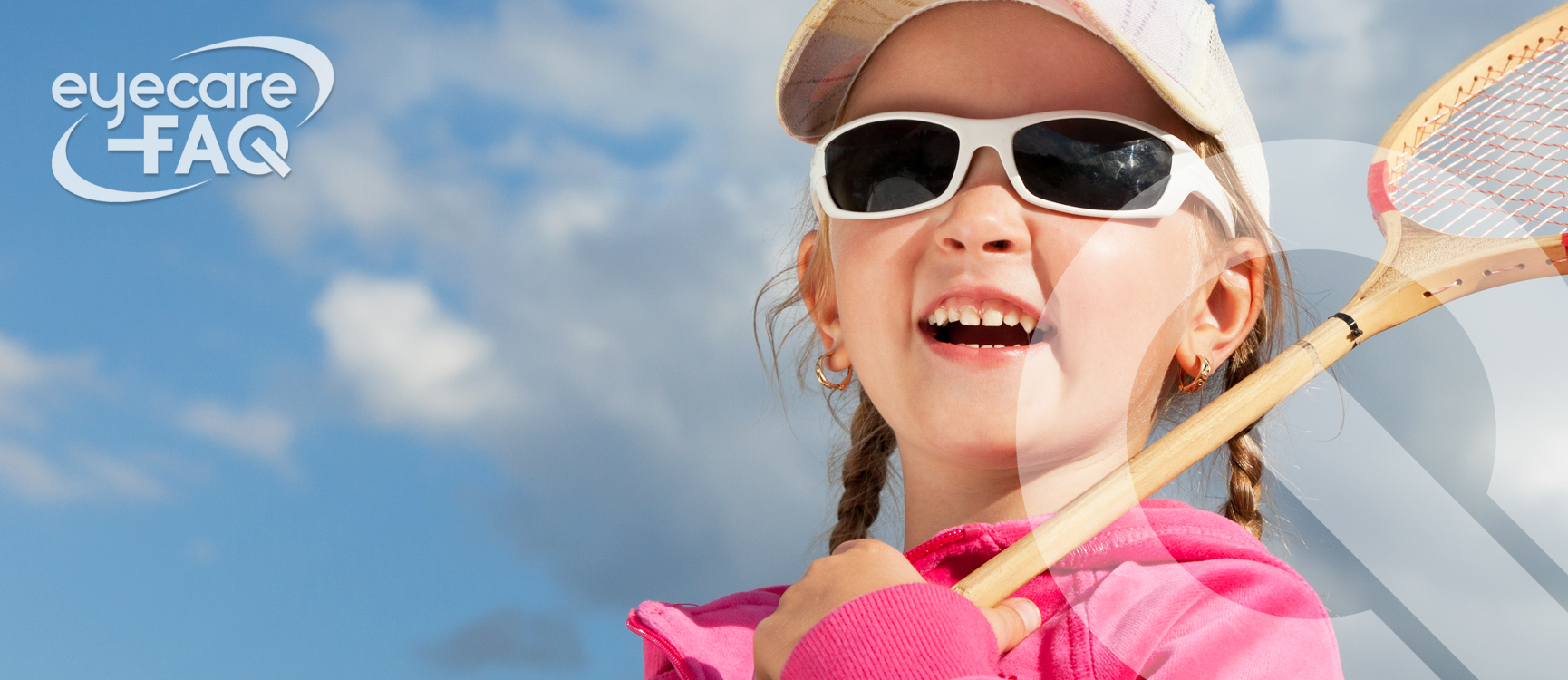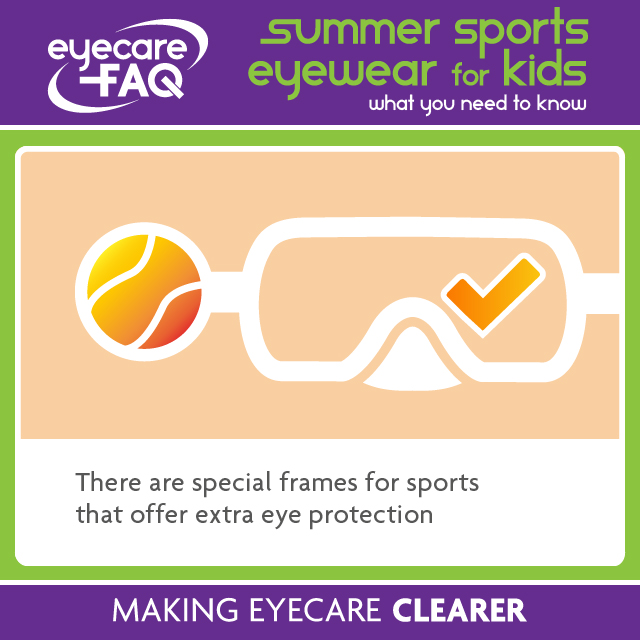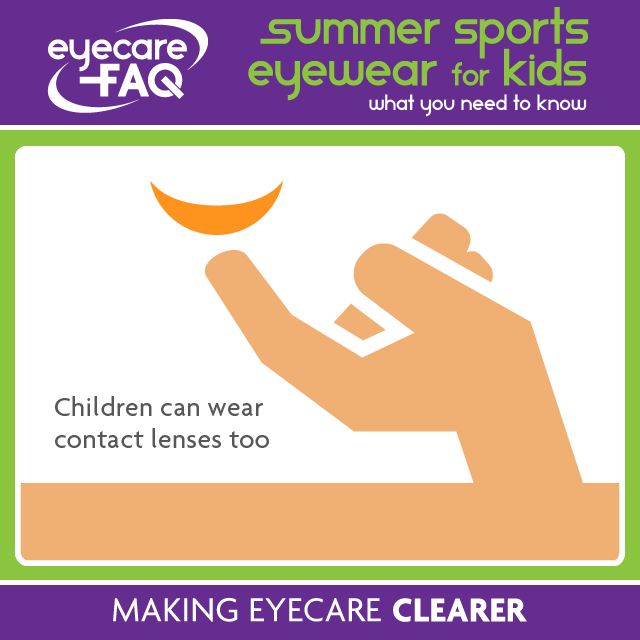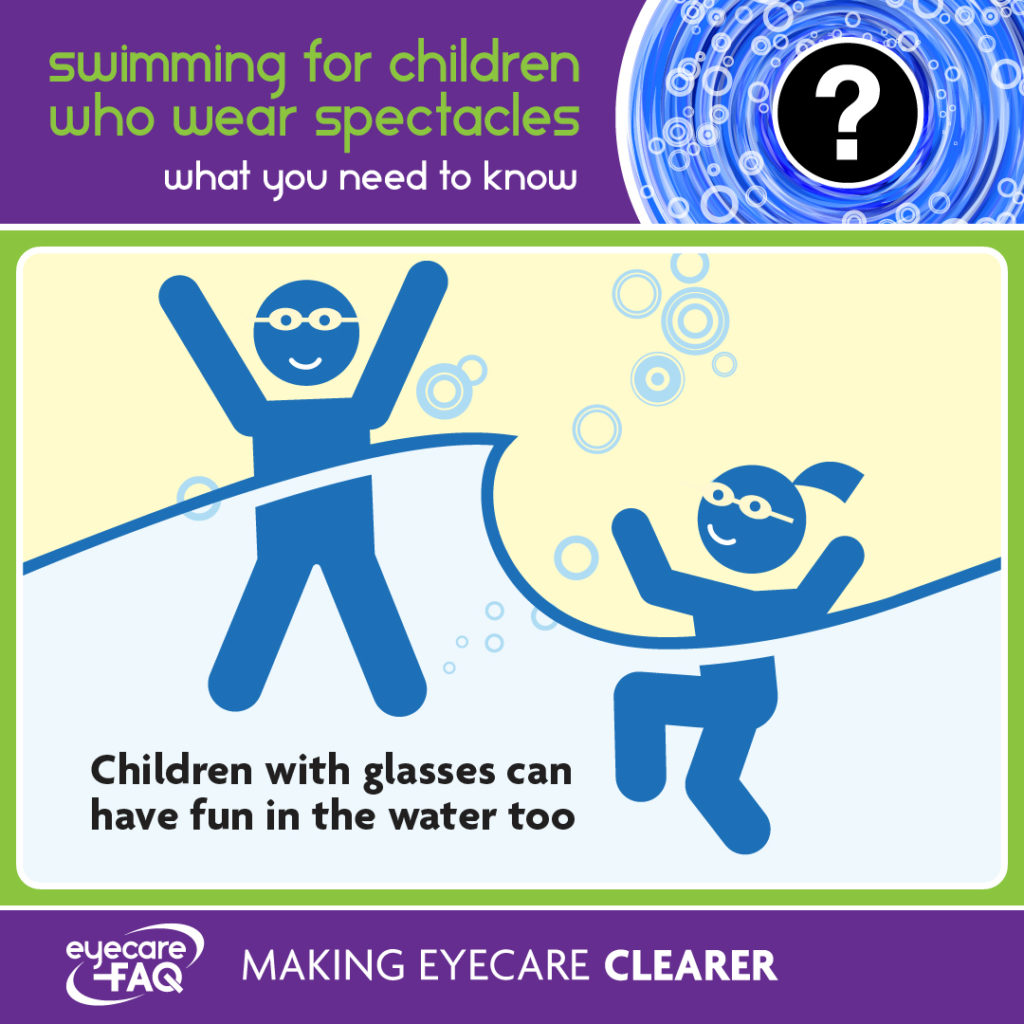Should my child take his or her glasses off for ballet or sports?
Some class leaders and teachers insist that children remove their specs for sport or dance classes, but this can impair their ability to join in the class. For some children it can affect their balance or ability to see instructions, while for those who are undergoing treatment for squint or lazy eye it can interrupt the beneficial effect of the specs. There is no need to remove specs for sport if the frame is chosen with the following points in mind. Plastic frames, without adjustable pad arms, can be the safer choice, and there are specific frames designed for sport too.
Think about getting a sport band for your child to hold their specs in place. Ask your dispensing optician for advice, and share this with your child’s teachers!
What are the best frames to pick if my child loves playing sport?
Wearing glasses shouldn’t stop your child taking part in a whole range of sports. A dispensing optician is trained to solve all sorts of eye wear issues, and knows the best frames and lenses to help your child. Plastic frames, without adjustable pad arms, can be the safer choice. A frame should cover your child’s orbit, the bony rim round the eye, and be worn with a sports band attachment. There are wrap-around frames with full cushioning which are purpose-designed for sport and will give optimum safety and comfort. With the right specs your child can go on enjoying all the sports that they love.
Ask your dispensing optician for advice.
What are the best lenses to pick if my child loves playing sport?
Wearing glasses shouldn’t stop your child taking part in a whole range of sports. A dispensing optician is trained to solve all sorts of eye wear issues, and knows the best frames and lenses to help your child. When choosing specs for a child, ask about polycarbonate and Trivex lenses: both are more robust than regular plastic lenses. Together with the right frame, your child can go on enjoying all the sports that they love.
Should I choose plastic or metal frames for my child?
There are lots of choices of frames for children nowadays in both plastic and metal. Plastic frames can be safer for young children, but it is easier to adjust the nosepads on metal frames. Plastic frames can hide a thicker lens. Every child is different, and the best frames for them will differ too.
Ask your dispensing optician for advice.
How do I get my child’s specs to stay on better when they are playing sport?
Every child deserves to have glasses that fit well: specs that slip don’t do their job as your child won’t be looking through the centre of the lenses. What’s more, if your child’s specs aren’t comfy, they won’t want to wear them. So, what do you do if your child’s glasses slip while they are being active? Start by going back to the practice where you got them. Ask to see the dispensing optician: they are specially trained to fit spectacles and will be able to adjust the frames for the best fit. Don’t be embarrassed to go back more than once: some children need their specs adjusting every few weeks as they get out of shape with the rough and tumble of everyday life. Some parents can find themselves visiting weekly or more often to keep the child looking through the centre of their spectacle lenses. And talk to the dispensing optician about the activities that your child loves: for some activities a headband can help your child’s specs stay in the right place.
Can my child wear contact lenses for sport?
There is no set age limit for children to start wearing contact lenses, and if your child is keen on sport they may want to think about contact lenses, whether it is for appearance, to make it easier to play sport, or even to fit in with friends. These are all important reasons to the child, and can help them be really motivated to wear contact lenses. Whatever your child’s age and motivation, the next thing to do is to pop into your local optical practice. Ask to speak to the optometrist, contact lens optician or dispensing optician. They can advise you and your child about what wearing contact lenses involves. This is a joint decision between the practitioner, parent and child, and all three have to agree that the child is ready to try out lenses, and the parent is committed to help care for the lenses. If you want to go ahead, you can then book a contact lens trial where your child can learn more about lenses and try them out.
My child wears glasses and can’t see very well when they are in the swimming pool. What’s the solution?
Navigating a pool with poor vision can be scary for a child but there is a solution. If your child normally wear specs, prescription goggles can help. Ready-to-wear prescription goggles, incorporating basic lens powers are available, or your dispensing optician can order goggles with your accurate prescription incorporated. Don’t order goggles online for your child: only registered practitioners are legally allowed to supply specs of any sort to kids. Call in to your local optical practice and ask the registered dispensing optician for more advice on the best goggles to help your child make the most of swimming.
My child wears glasses: can I get sunglasses in their prescription too?
Children need to protect their eyes from UV just as much as adults do and your local optical practice can offer plenty of choice of frames and sunglasses lenses in your child’s prescription nowadays. Very small children and babies should not be in the sun at all: according to the NHS toddlers and older should wear sun cream, a hat and loose, baggy cotton clothes, such as an oversized T-shirt with sleeves. Protect your child’s eyes with sunglasses that meet the British Standard (BS EN ISO 12312-1*) and carry the “CE” mark. Check the label or ask a registered dispensing optician for advice.
What labels should I look for on sunglasses for my child?
Children need to wear sunglasses just as much as adults to protect their eyes from damaging effects of UV light. Look for CE marked sunglasses that meet British Standard EN ISO 12312-1 to make sure that the lenses offer proper protection.




